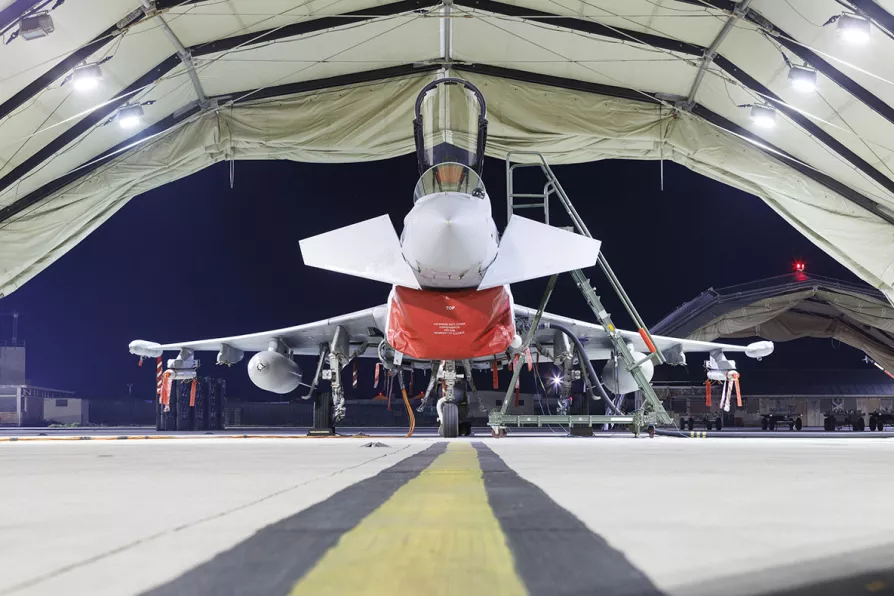If parties are serious about rebuilding trust, as the elections approach, they must embrace bold redistribution, invest in public services and put working people, not the wealthy few, at the heart of Scotland’s future, argues ROZ FOYER

 A RAF Typhoon FGR4 aircraft returning to the base following strikes against Houthi targets in Yemen, February 4, 2024
[AS1 Jake Green/RAF via AP]
A RAF Typhoon FGR4 aircraft returning to the base following strikes against Houthi targets in Yemen, February 4, 2024
[AS1 Jake Green/RAF via AP]
THE astonishing effectiveness of the Houthi blockade of Israeli-linked shipping through the Red Sea has provoked a dangerous US-British response.
Lone among nations, Yemen has taken military action to uphold international law against the genocide in Gaza. In November it warned that any Israeli-owned shipping or ships to and from Israel would be legitimate targets — until the genocide ceases. Ships with no links with Israel had nothing to worry about.
The Houthi attacks on around 30 commercial ships so far — without any loss of life — have forced international shipping thousands of miles round South Africa rather than sailing through the Red Sea and Suez Canal to Europe. Ships now have to pay a war-risk premium on the London insurance market. A third of all container shipping passes through the Red Sea and this fell by 60 per cent between November and December.

While Trump praises the ‘successful’ attack on Iranian nuclear sites, the question arises as to the real motives behind this escalation. MARC VANDEPITTE explores the issues












